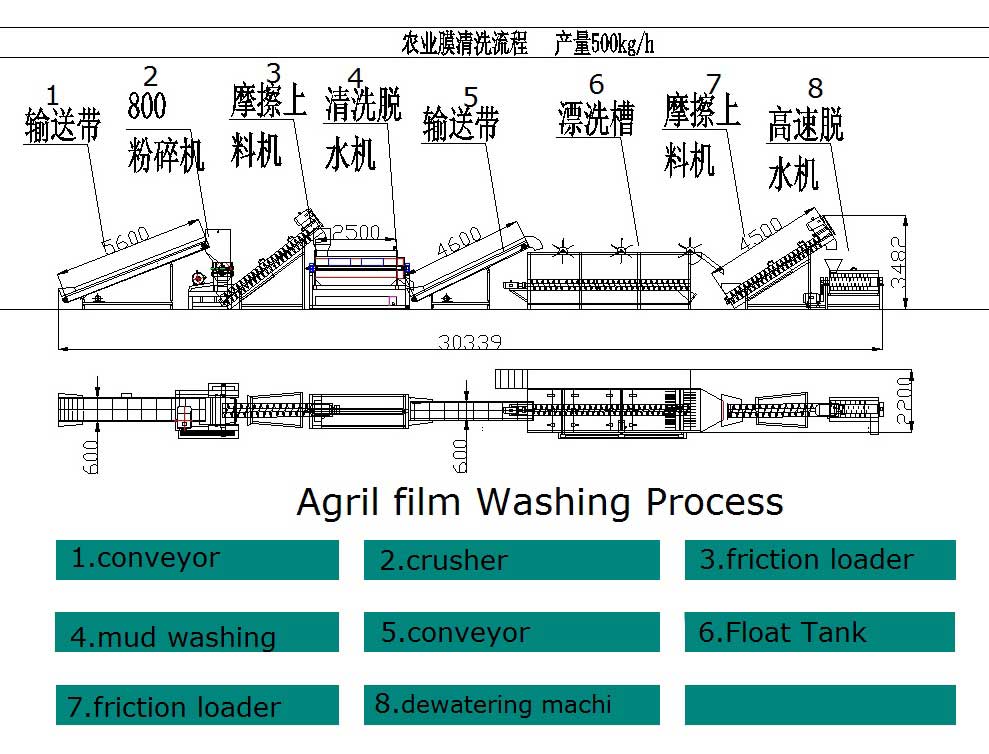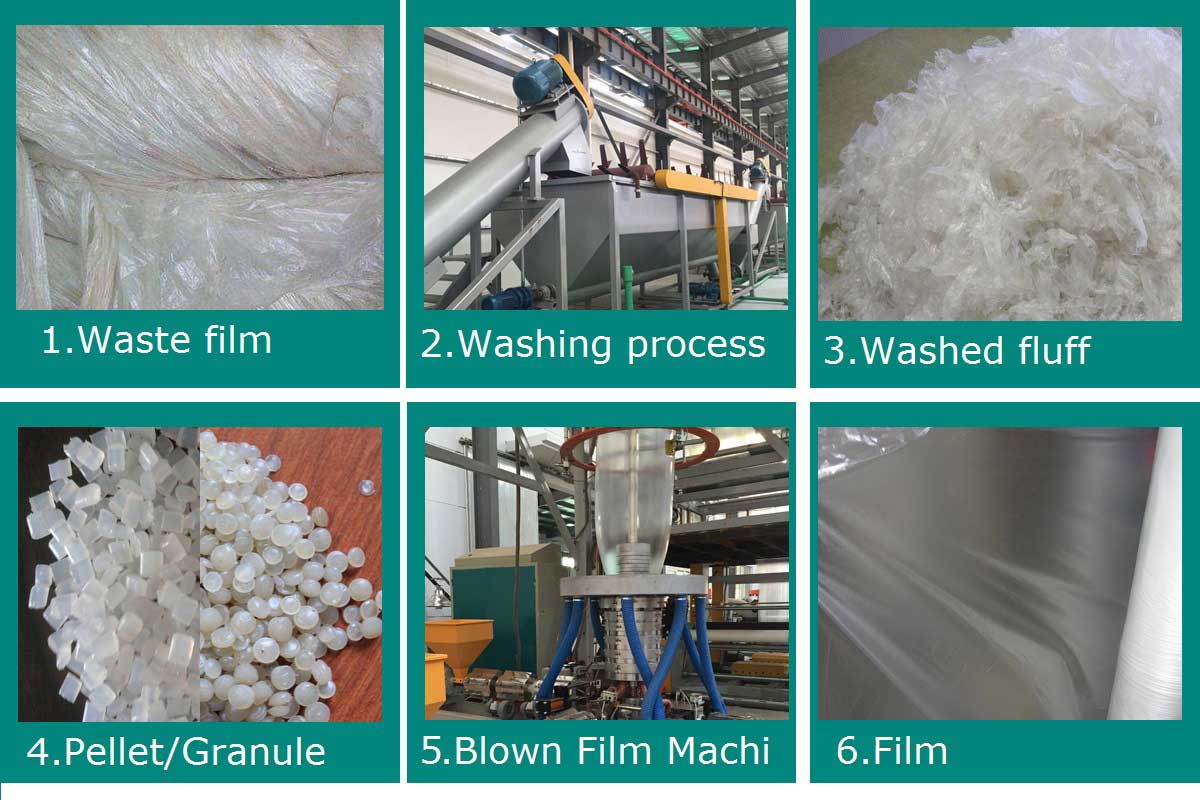Growing interest in agricultural film recycling is made evident by the attention drawn from institutions such as the EU and other national organizations. Very specific regulations are being enforced, and legislative action is being taken, towards the creation of a closed loop cycle in the use of agricultural film, requiring the presence of a recycling step. Agricultural film available for collection may be divided into families:
• Greenhouse film: 80÷150 mµ thick, low contamination but significant degradation by atmospheric agents and by the agricultural cycle;
• Mulching film: 8÷20 mµ thick, high quality, low degradation, but very thin with high degree of contamination;
• Stretch wrap film: 12÷25 mµ thick, high quality, but very thin with high degree of contamination;
• Banana Film: 10÷15 mµ thick, high quality, but very thin with medium/high contamination;
• Non woven PP film: 10÷15 mµ thick, thin material with significant degree of contamination, difficult to wash and dry;
• Irrigation pipes: 200 mµ thick, internal contamination present in the material;
• Tunnel film: 30÷40 mµ thick, high quality, low degradation, but high degree of contamination.
According to the customer’s needs and requirements, Silver Python can design film washing lines suitable to treat the different agricultural films, often blended with each other or mixed with post-consumer and/or post-commercial film.
In addition, based on the customer’s requests, we can also design film washing lines expressly dedicated to the most difficult families of agricultural film and tailored to the type of waste to be treated. Silver Python has already realized around the world agricultural film washing lines capable of treating even the thinnest and most contaminated types of agricultural film.
In case of Agricultural Film Recycling Machines specifically dedicated to the recycling of pure agricultural film the key points of the recycling washing process are:
• a. Wearing and maintenance costs given by the high contaminations of the materials
• b. Water consumptions and water treatment
• c. Drying, particularly for the thinnest agricultural film


